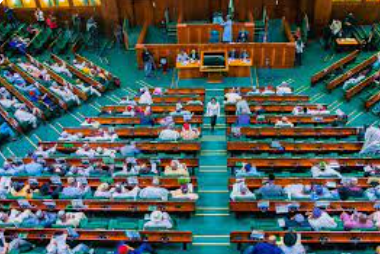The House of Representatives Committee on Public Petitions has issued a summons to the Governors of Benue and Zamfara states, Hyacinth Alia and Dauda Lawal, respectively, along with their respective state assemblies. The summons directs them to appear before the committee on Thursday, March 8, to address concerns regarding the potential takeover of their constitutional functions by the House of Representatives. This action follows a petition submitted by the civil rights organization, Guardians of Democracy and Rule of Law, urging the House to intervene in the affairs of the two state assemblies.
The petition, which prompted the committee’s intervention, alleges a disruption of the normal functioning of the legislative arms in Benue and Zamfara states. The Guardians of Democracy and Rule of Law argue that these disruptions warrant the House of Representatives assuming control over the state assemblies’ responsibilities, as outlined in the constitution. The specifics of the disruptions, along with the supporting evidence presented by the petitioners, will be scrutinized during the hearing.
The summons, signed by Committee Chairman Mike Etaba, underscores the importance of upholding the rule of law and ensuring that all parties involved have a fair opportunity to present their perspectives. Etaba emphasized the committee’s commitment to transparency, stating that the proceedings would shed light on the situation for the benefit of the Nigerian public. He firmly asserted that any form of anarchy or disregard for constitutional principles would not be tolerated.
The hearing scheduled for March 8 holds significant implications for the governance of Benue and Zamfara states. The governors and state assembly members are expected to provide detailed explanations and justifications for their actions, addressing the allegations raised in the petition. The committee’s subsequent decision, based on the evidence and testimonies presented, could range from dismissing the petition to recommending a partial or complete takeover of the state assemblies’ functions by the House of Representatives. Such a takeover, while rare, is within the powers of the National Assembly to ensure the continuity of governance in cases where state-level institutions are deemed to be failing in their constitutional duties.
The involvement of a civil rights organization like the Guardians of Democracy and Rule of Law highlights the crucial role of civil society in holding government institutions accountable. Their petition serves as a mechanism for bringing alleged irregularities to the attention of the National Assembly, triggering an investigation and potential intervention. The outcome of this case will likely set a precedent for future instances where similar concerns are raised about the functioning of state legislatures.
This situation also emphasizes the delicate balance of power between the federal government and the states within Nigeria’s federal system. The constitution provides the National Assembly with certain oversight powers to intervene in state affairs under specific circumstances. However, exercising such powers requires careful consideration of the principles of federalism and the potential impact on the autonomy of state governments. The committee’s decision will undoubtedly be scrutinized for its adherence to these principles and its long-term implications for intergovernmental relations in Nigeria. The media, represented here by Dirisu Yakubu of The PUNCH, plays a critical role in informing the public about these proceedings and ensuring transparency in the process.


